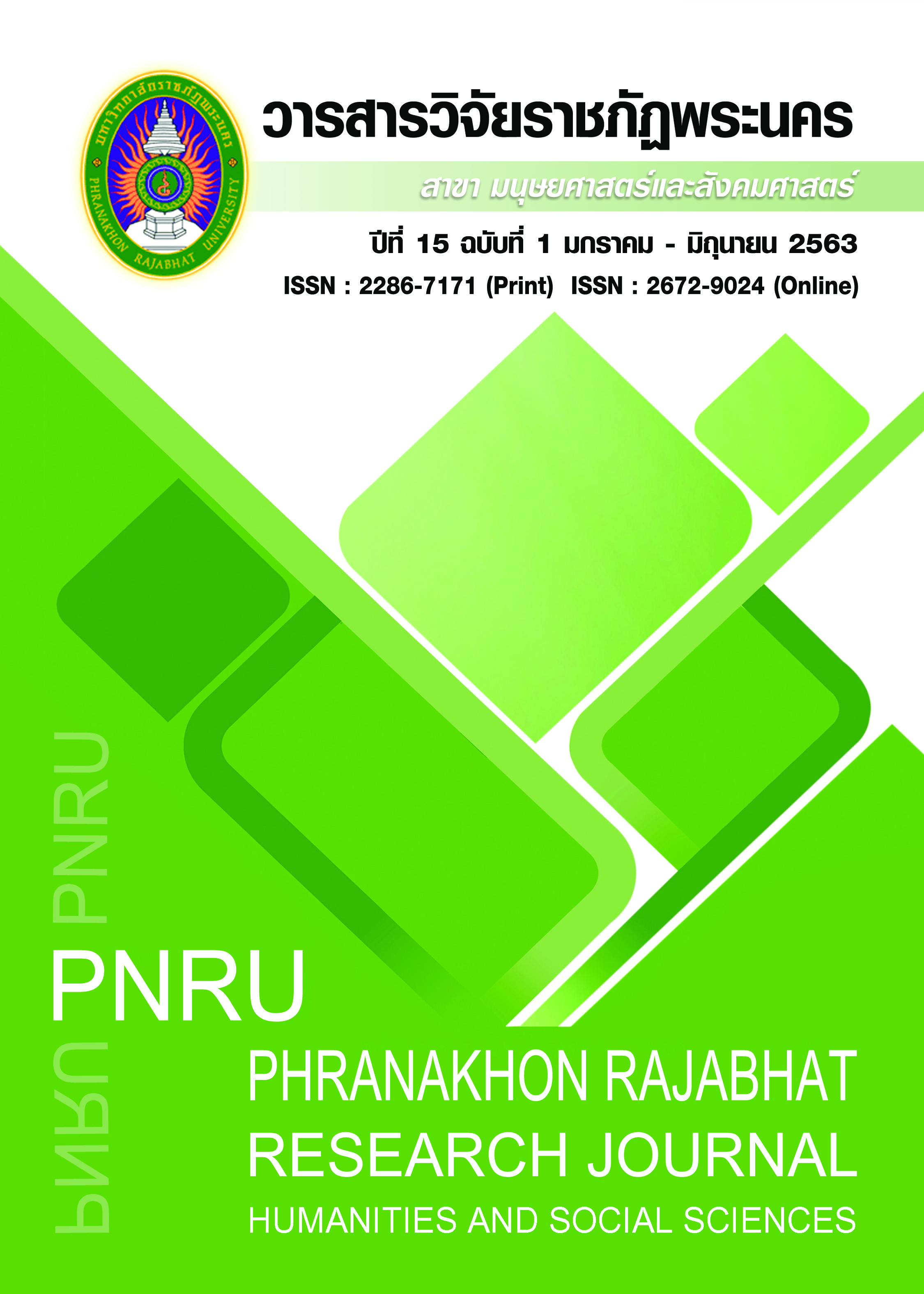THE PRIORITY NEEDS OF PRIVATE PRIMARY SCHOOL MANAGEMENT BASED ON THE CONCEPT OF STUDENT INNOVATIVE LEADERSHIP
Main Article Content
Abstract
The purpose of this research was to study the priority needs of private primary school management based on the concept of student’s innovative leadership, focusing on the management of the academics and students’ affairs. While the research is centered around curriculum management, learning management, and assessment and evaluation on the academic’s side, it examines the students’ affairs management in aspects of performance-enhancing activities and extracurricular activities. The sample group used in this research consists of 340 private primary schools in Thailand, selected through the multi-stage random sampling method. The informants are 560 informants school directors and teachers. The instrument used in this study was a 5-level rating-scale questionnaire. The data was analyzed by using frequency distribution, percentage, mean, standard deviation, and the Modified Priority Needs Index (PNI modified). The findings indicate that, for the academic management, assessment and evaluation of students’ performance receives the highest priority needs index, followed by curriculum management and learning management. On the other hand, the highest priority needs index is given to performance-enhancing activities and extracurricular activities, respectively for the student affairs management. Overall it is found that promoting primary students’ creativity and ability to innovate have high priority needs in all aspects of private primary school management.
Article Details
Each publish articles were copyright by Phranakorn Rajabhat University
Any contents which appeared in each articles in the journal were authors personal opinion. It did not relate to Phranakorn Rajabhat University and other instructors in the university. Each authors would take responsibility on their articles. If there are any mistake, the authors will take responsibility themselves
References
Ailin, M. and Lindgren, P. (2008). Innovation Leadership in Danish SMEs. In Management of Innovation and Technology, ICMIT 2008. Proceeding of 4th IEEE International Conference. 21-24 September. pp.98-103.
Asawaphum, S. (2008). Modern education administration. Ubon Kit Offset Printing. Ubon Ratchathani. (In thai)
Chamchoy, S. (2017). Administration of education in the digital age. Phitsanulokdotcom. Phitsanulok. (In thai)
Charoenwongsak,K. (2008). Build leadership in children and youth. Retrieved March 2, 2019, from http://www.moe.go.th/moe/th/news/detail.php?NewsID=2567&Key=hotnews (In thai)
George (2014). What really motivates workers, excerpted from the H.B.R. List: Break-through Ideas for 2010. Harvard Business Review, Retrieved March 2, 2019, https://www.researchgate.net/publication/299533980_Becoming_a_Leader_Who_Foster_Innovation.
Ministry of Education (2003). The Handbook of School Administration for Independent School under Office of Basic Education Commission. Bangkok (In Thai)
Roscorla (2010). The 7 Steps to Innovative Leadership. Harvard Business Review.
Songkarm, N. (2014). Innovation Turn learners into innovators from research to practice. Publisher of Chulalongkorn University. Bangkok. (In Thai)
Tangkitwanit, S. (2012). Failure of the evaluation system Thai education. Retrieved March 2, 2019, from https://thaipublica.org/2012/02/failure-thai-educational-system/.(In Thai)
Weiss, D.S. and Legrand, C. (2011). Innovative Intelligence: The Art and Practice of Leading Sustainable Innovation in Your Organization.


